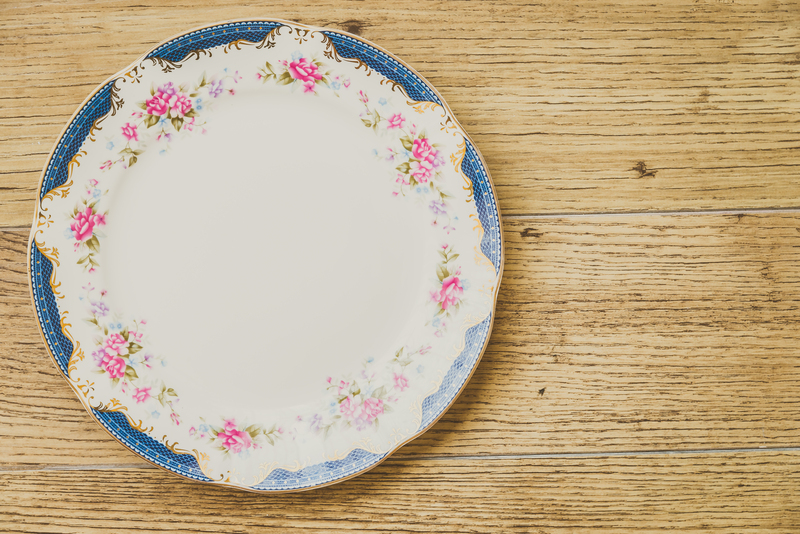Sustainable Solutions for Pots and Pans Recycling
Our kitchens are the heart of our homes, filled with tools that make magic happen -- from simmering pots to sizzling frying pans. Over time, however, cookware can become worn out or outdated. Rather than tossing your old pots and pans in the trash, embrace environmentally friendly options. Sustainable solutions for pots and pans recycling are not only possible but essential for reducing landfill waste and protecting our planet. This comprehensive guide explores how to recycle, dispose, upcycle, and donate cookware, creating a positive impact on the environment.
Why Recycling Old Pots and Pans Matters
- Environmental Impact: Non-recycled cookware contributes to landfill buildup, emitting harmful greenhouse gases as they decompose.
- Resource Conservation: Many pots and pans contain metals and materials that can be recovered and reused, conserving finite resources like aluminum and stainless steel.
- Reducing Pollution: Proper recycling prevents leaching of toxins from non-stick coatings and other materials that can contaminate soil and groundwater.
- Promoting Circular Economy: Recycling helps keep valuable resources in use and supports the creation of new products.

Understanding Materials in Cookware
Cookware comes in various materials, and understanding what your pots and pans are made of is vital for effective and sustainable cookware recycling. Here's a breakdown of common materials:
- Stainless Steel: Highly recyclable and often accepted by metal recyclers.
- Aluminum: Lightweight, rustproof, and widely recycled.
- Copper: Valuable and easily repurposed or recycled.
- Cast Iron: Durable, infinitely recyclable, and ideal for upcycling.
- Non-Stick (Teflon, Ceramic): Trickier to recycle due to coatings but can still be eco-friendly disposed if managed properly.
How to Prepare Pots and Pans for Recycling
Before dropping your old pots and pans at a recycling center or scrap yard, there are a few crucial steps to ensure effective recycling:
- Clean Thoroughly: Remove any food residue or grease to prevent contamination in recycling streams.
- Remove Non-Metal Parts: Take off plastic handles, rubber grips, or glass lids. These parts may need to be recycled differently.
- Separate by Material: Group your cookware by metal type if possible. Mixed materials can complicate recycling processes.
- Check for Lightweight Coatings: Some centers may reject items with significant non-stick coatings. Confirm with your recycler or use a specialist.
Best Pots and Pans Recycling Solutions
1. Drop-Off at a Metal Recycling Facility
Metal recycling centers are among the best destinations for old cookware. These facilities possess the technology to process, melt, and repurpose metals, providing a sustainable cookware disposal solution. Look for scrap metal yards or municipal recycling centers that accept household metal goods.
2. Curbside Recycling Programs
Some municipalities allow pots and pans in curbside recycling, especially those made entirely of metals like aluminum or stainless steel. Always check your local recycling guidelines first -- non-stick or composite pans are sometimes excluded.
3. Manufacturer Take-Back Programs
Certain cookware brands -- such as Calphalon, Tefal, and others -- may offer take-back recycling programs. These initiatives encourage customers to mail in old cookware for safe recycling. Visit your manufacturer's website or contact customer service to inquire about available take-back policies.
4. Donation to Charity Organizations
If your cookware is still usable, consider donating to local shelters, thrift stores, or non-profit programs. Many organizations gladly accept gently-used pots and pans for people in need, extending their lifecycle while reducing waste.
5. Upcycling and Creative Repurposing
For items that can't be recycled easily, get creative! Upcycling transforms old cookware into garden planters, bird feeders, wall art, or storage containers, giving new purpose to your pots and pans. This is a fun, eco-friendly alternative to landfill disposal.
Eco Friendly Pots and Pans Disposal: Step-by-Step
- Identify Recyclable Materials: Check what category your cookware falls into -- metal, mixed material, or non-recyclable.
- Contact Local Facilities: Find local recycling centers, scrap yards, or community hazardous waste programs using online directories (e.g., Earth911.com).
- Prepare and Clean: Remove as much non-metal material as possible and clean the cookware.
- Transport Safely: Deliver items to the facility, following any specific instructions regarding drop-off or sorting.
- Document Your Effort: Some facilities provide documentation for eco-conscious businesses or homeowners looking to track their recycling impact.
What About Non-Stick Pans?
Non-stick cookware contains coatings that can complicate recycling. Here's how to manage environmentally responsible pans disposal:
- Check for "PFOA-Free" Markings: PFOA (Perfluorooctanoic acid) is a toxic chemical, but newer non-stick pans are usually PFOA-free and safer for recycling.
- Contact Specialist Recyclers: Reach out to companies or facilities experienced in handling non-stick materials.
- Remove Handles: Separate all plastic and rubber components if possible.
- Never Incinerate: Burning non-stick pans can release toxic fumes.
- Upcycle: If recycling is not possible, consider upcycling (e.g., use as a seed starter tray or art supply).
Upcycling and Repurposing Ideas for Pots and Pans
1. Garden Planters
Turn old pots into unique planters for herbs and flowers. Drill drainage holes as needed and enjoy a rustic addition to your garden.
2. DIY Bird Feeders
Hang small pans on tree branches, fill with birdseed, and enjoy watching your feathered friends gather.
3. Wall Art and Decor
Spray paint or decorate old pans and hang them for vintage-inspired kitchen decor or use as frameworks for clocks and mirrors.
4. Storage Solutions
Use deep pots to organize tools, utensils, or arts and crafts supplies in the garage or studio.
5. Candle Holders and Lanterns
Tin or aluminum pots can be transformed into candle holders or lanterns for ambient backyard lighting. Get creative with shapes and cutouts!
Where to Recycle Pots and Pans Near Me
Finding the best location for sustainable cookware recycling depends on your region. Here are some tips:
- Check Local Waste Management Websites: Most city recycling programs outline accepted materials and nearest drop-off sites.
- Visit Scrapyards: Type "metal recycling near me" into your favorite search engine to find local options.
- Search Online Directories: Earth911, RecycleNation, and similar platforms let you filter by item and zip code.
- Retail Collection Events: Some hardware stores or home goods retailers hold collection days for hard-to-recycle items, including cookware.
Environmental Benefits of Sustainable Pots and Pans Recycling
- Reduces Landfill Waste: Metal cookware takes centuries to break down, occupying vital landfill space.
- Saves Resources: Recycling metals uses significantly less energy than mining and refining new materials.
- Decreases Pollution: Prevents toxic materials (from non-stick coatings or paint) from leaching into the environment.
- Supports Green Jobs: The recycling sector provides employment opportunities in local communities.
Common Questions about Pots and Pans Recycling
Can all pots and pans be recycled?
Most metal cookware -- including aluminum, cast iron, copper, and stainless steel -- is readily recyclable. However, items with heavy non-stick coatings or inseparable mixed materials may be challenging. Check with your local recycler for guidelines.
What should I do with cookware that can't be recycled?
Look for donation, upcycling, or repurposing opportunities. Even if you can't recycle, creative reuse prevents unnecessary waste.
Will recycling pans contaminate other recyclables?
Not if you clean and separate materials as recommended. Removing food and non-metal parts is crucial for successful recycling.
Do any retailers accept old cookware?
Some retailers and manufacturers may offer trade-in or mail-back programs. Contact customer service for details.

Future of Sustainable Cookware Disposal
Advancements in recycling technology and increased consumer awareness are paving the way for even more robust solutions for the sustainable recycling of pots and pans. As manufacturers adopt more eco-friendly materials and end-of-life solutions, the options for disposing of or repurposing old cookware will continue expanding.
- Innovation in Materials: New biodegradable coatings and composites may allow for easier recycling in the future.
- Extended Producer Responsibility (EPR): Policies that make manufacturers responsible for end-of-life product management can improve recycling rates.
- Community Initiatives: Neighborhood swap meets and repair cafes are promoting longer product lifecycles for all types of kitchenware.
Conclusion: Make a Positive Change
By choosing responsible, sustainable solutions for pots and pans recycling, you're not only decluttering your kitchen but also contributing to a healthier planet. Remember: whether you donate, recycle, or upcycle your cookware, every action counts. Embrace these sustainable pans disposal solutions today for a greener tomorrow!
Ready to recycle your old pots and pans? Search for your nearest facility, explore creative upcycling ideas, or donate to someone in need. Your choices matter -- for your home, your community, and the world.